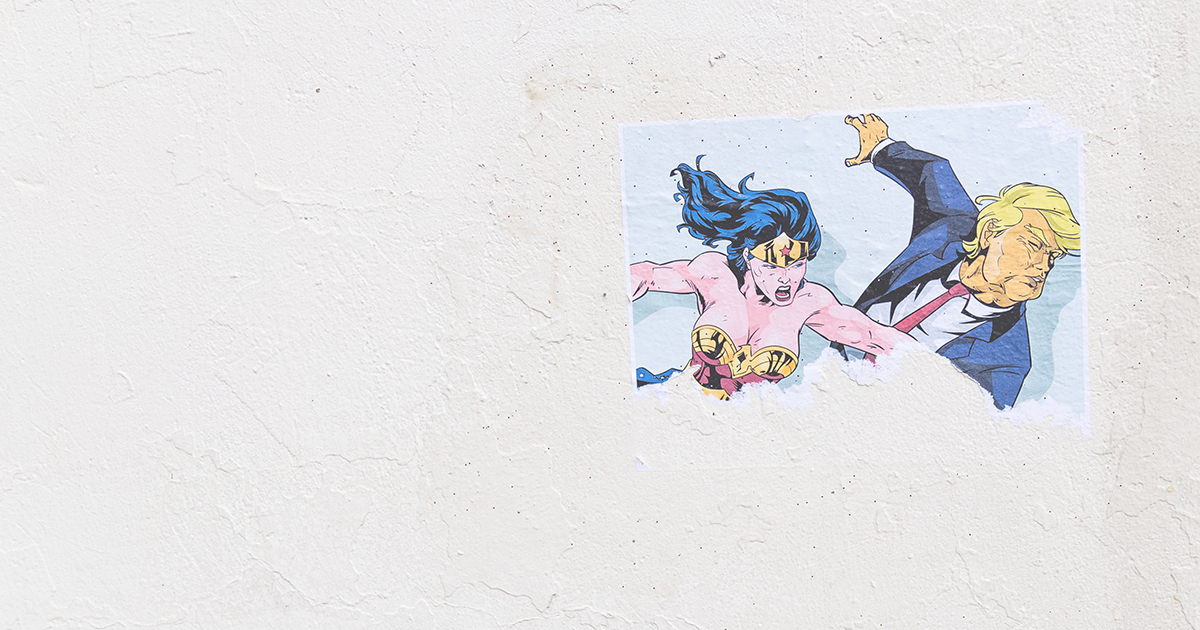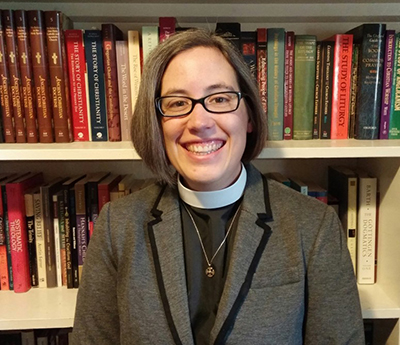SOUL MATTERS
★ ★ ★ ★
THE WISDOM OF WONDER WOMAN

By Reverend Rachel Kessler
It is probably something of an understatement to say that Wonder Woman is a film that inspired intense emotional reactions from the people who have seen it. Many of my female friends were moved to tears seeing the grace and power of the Amazonian warriors who dominated the first act of the film. Others, myself included, simply felt inspired seeing a female protagonist entrusted with the weight of a large studio superhero franchise.
I cannot deny I loved seeing Diana, princess of the Amazons, confounding the expectations of the men around her and dominating the battlefield. That said, I found myself particularly moved by what I can only describe as the profound spiritual message at the heart of the film. This may not be an obvious connection to make, but it can be hard to turn off a priest’s brain, even at the movies. Is humanity worth fighting for, despite all of our faults and cruelty and, for lack of a better word, the collective filth that can seem to pollute our souls?
Without giving too much away for those who have yet to see this latest summer blockbuster, the central conflict of the film rests on Diana’s (Wonder Woman’s) conception of humanity. It is easy for her to come to the aid of the human race when she embraces the bedtime story she was told as a child: people are inherently good, though we may be corrupted by forces beyond our control. As with any coming-of-age story, however, Diana’s increasingly complicated experiences interacting with human beings lead her to an increasingly complicated view of humanity. She must come to terms with the reality that even the friends she has come to know, love, and respect, harbor within them the potential for violence and evil. This is not an easy realization for Diana to grasp, leading her briefly to turn her back on the people she has sworn to defend.
The profound emotional moment for me came when Diana realizes her commitment to the service of humanity has nothing to do with whether these human creatures she has sworn to protect “deserve” her compassion. They probably do not. And yet, she sees the human capacity for love, for self-sacrifice, and chooses a path of compassion for these flawed creatures.
That may sound like a rather pessimistic view of humanity for a light-hearted summer popcorn flick to embrace. And yet it is a worldview that I find refreshingly honest for the mainstream entertainment media. So often, it feels like the entertainment industry wants to shy away from any indication that there is something fundamentally corrupt at times in the heart of our human condition. After all, we want to feel good about ourselves most of the time, don’t we?
And yet, if we are honest with ourselves, we know that the worldview presented in a film like Wonder Woman touches on an uncomfortable truth that we may not want to admit most of the time. It is hard to look at ourselves in a collective human mirror and look at all of the deep flaws that claim us—both individually and collectively. However, even the movie Wonder Woman itself illustrates how broken our human condition can be. Despite Wonder Woman being a major step forward for representation of women in big-budget Hollywood action films, the movie has not been without controversy. Numerous voices online have pointed out that the film falls far from presenting an “intersectional” understanding of feminism—it is still very much an example of “white” feminism, continuing to marginalize (at best) women of color. Other would-be Wonder Woman fans have opted to boycott the film on account of actress Gal Gadot’s seeming complicity in the persecution of the Palestinian people.
In my tradition, we would name such issues “sin.” We might just as easily use language of systemic oppression and injustice of various marginalized groups. We do not have to look hard in our world to find examples of systemic racism, homophobia, transphobia, misogyny, and economic inequality—not to mention everyday examples of greed or pettiness. When we think about the work that needs to be accomplished in our world in order to build a society that is genuinely founded on principles of justice and inclusiveness—especially when we think of all the impediments that stand against such a vision for society—it can feel as though the task is not worth perusing. Are we really worth saving? Is it really worth trying to do the work to fight for justice when so many powers that be seem committed to defending injustice in every way possible?
Wonder Woman, flimsy summer blockbuster though it may be, answered that question with an emphatic yes. Absolutely, it is worthwhile to continue fighting for the sake of what is right and for the defense of those who need defending, even when the world seems stacked against us. Moreover, we engage in that fight not primarily with our superhuman physical strength but through a commitment to love. Not an idealized version of love, but a deeply embodied love that is born out in our willingness to sacrifice ourselves and our own well-being for one another. Nothing is as radical or as powerful as that.

Reverend Rachel Kessler is a college chaplain and Episcopal priest. She enjoys commenting on the intersection of faith and popular culture.
























Trackbacks/Pingbacks